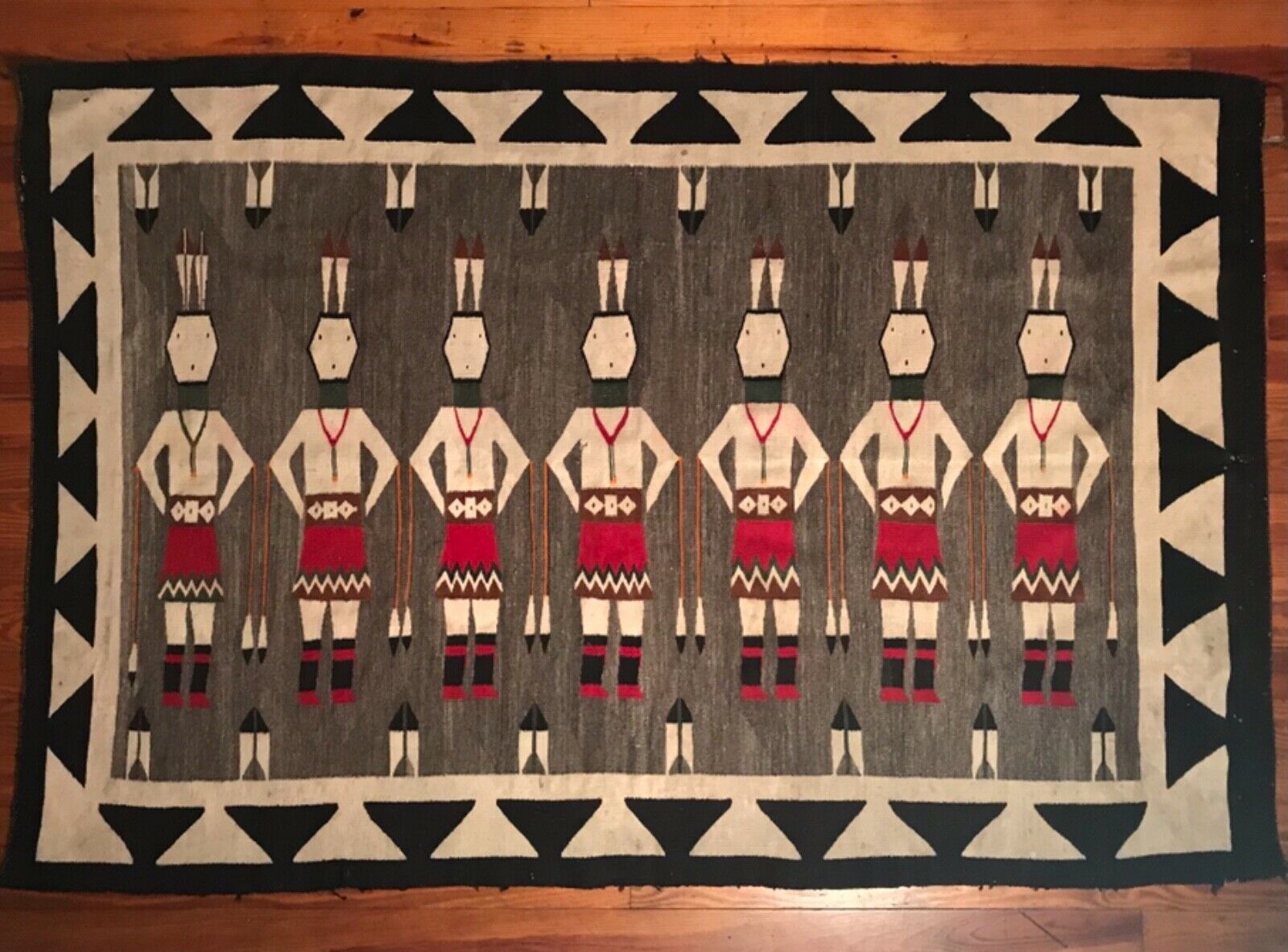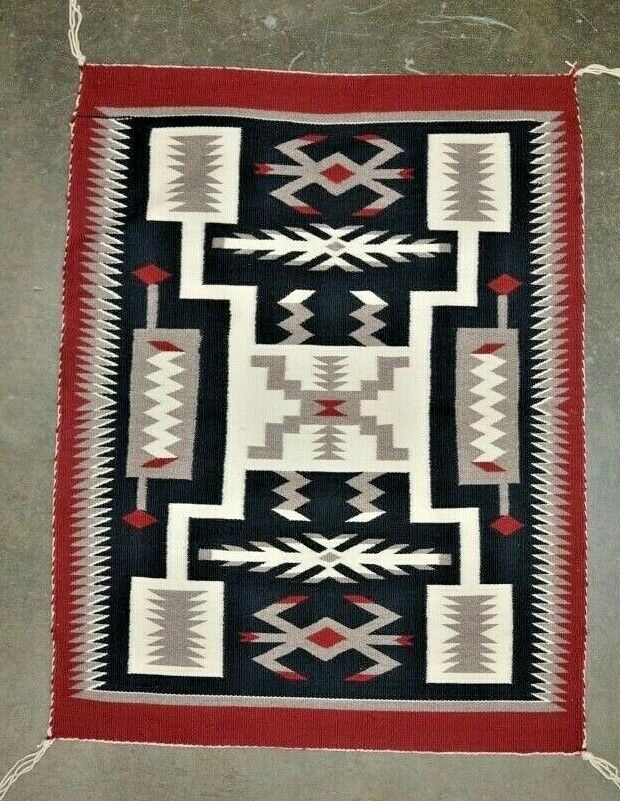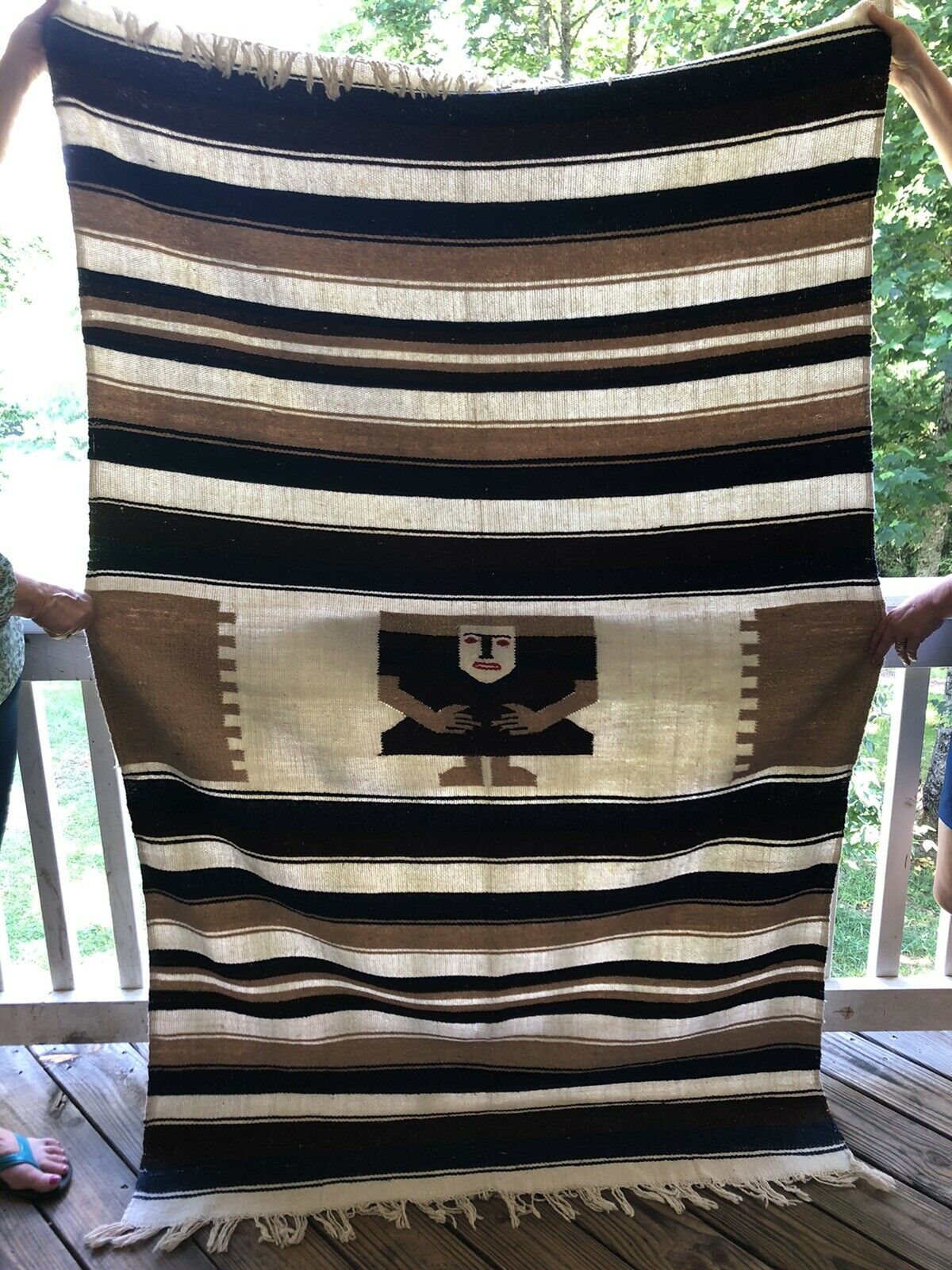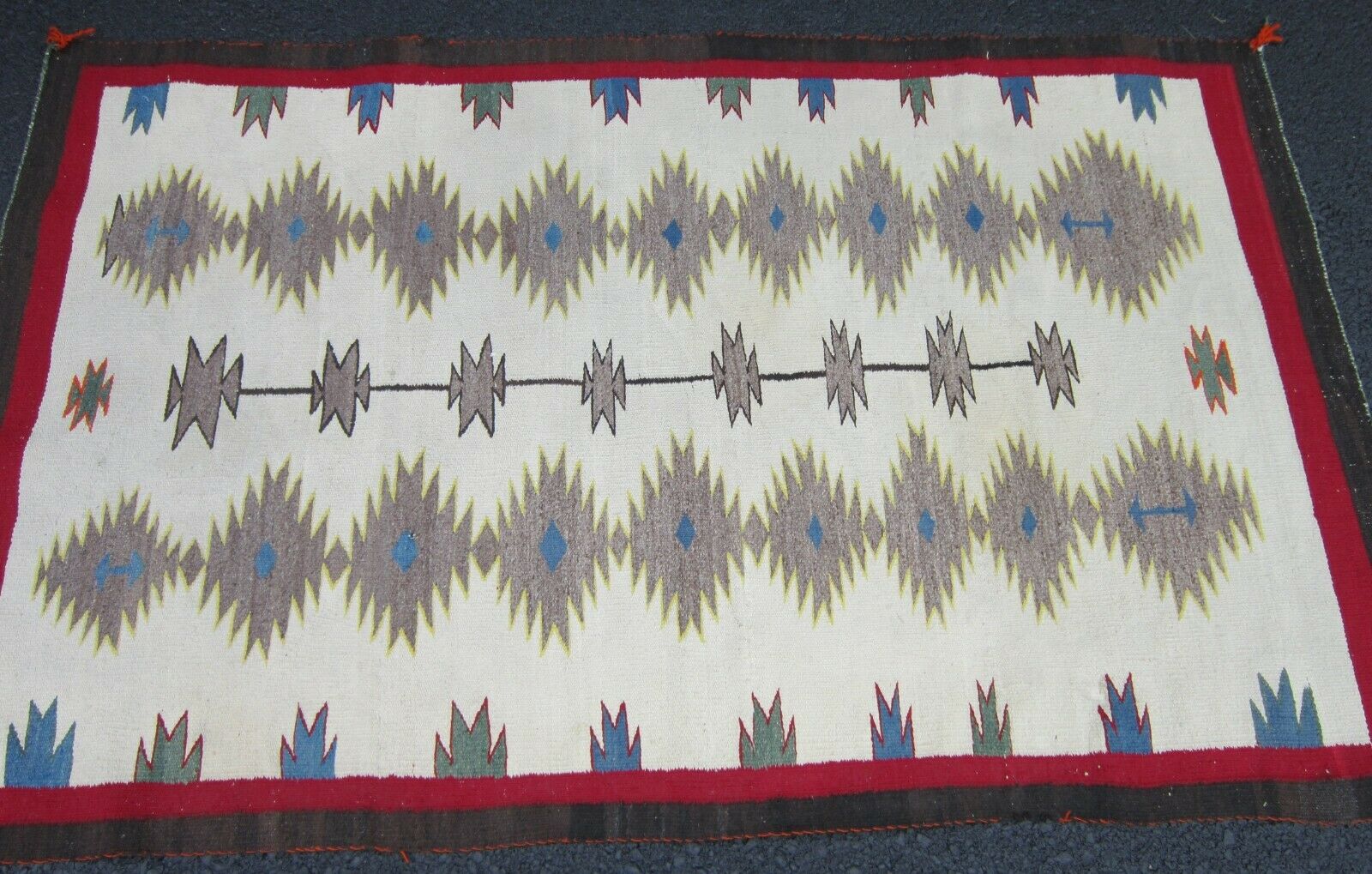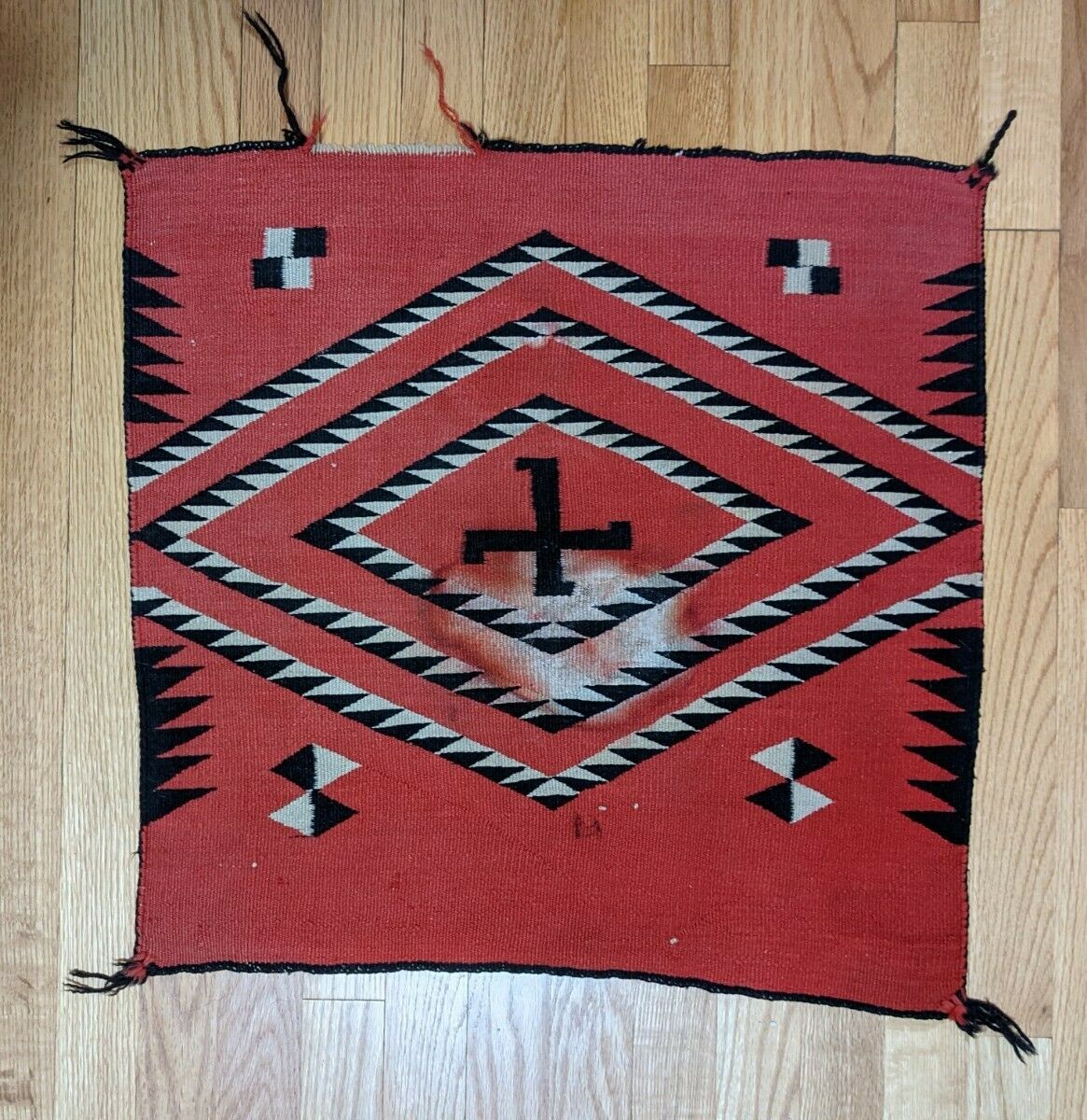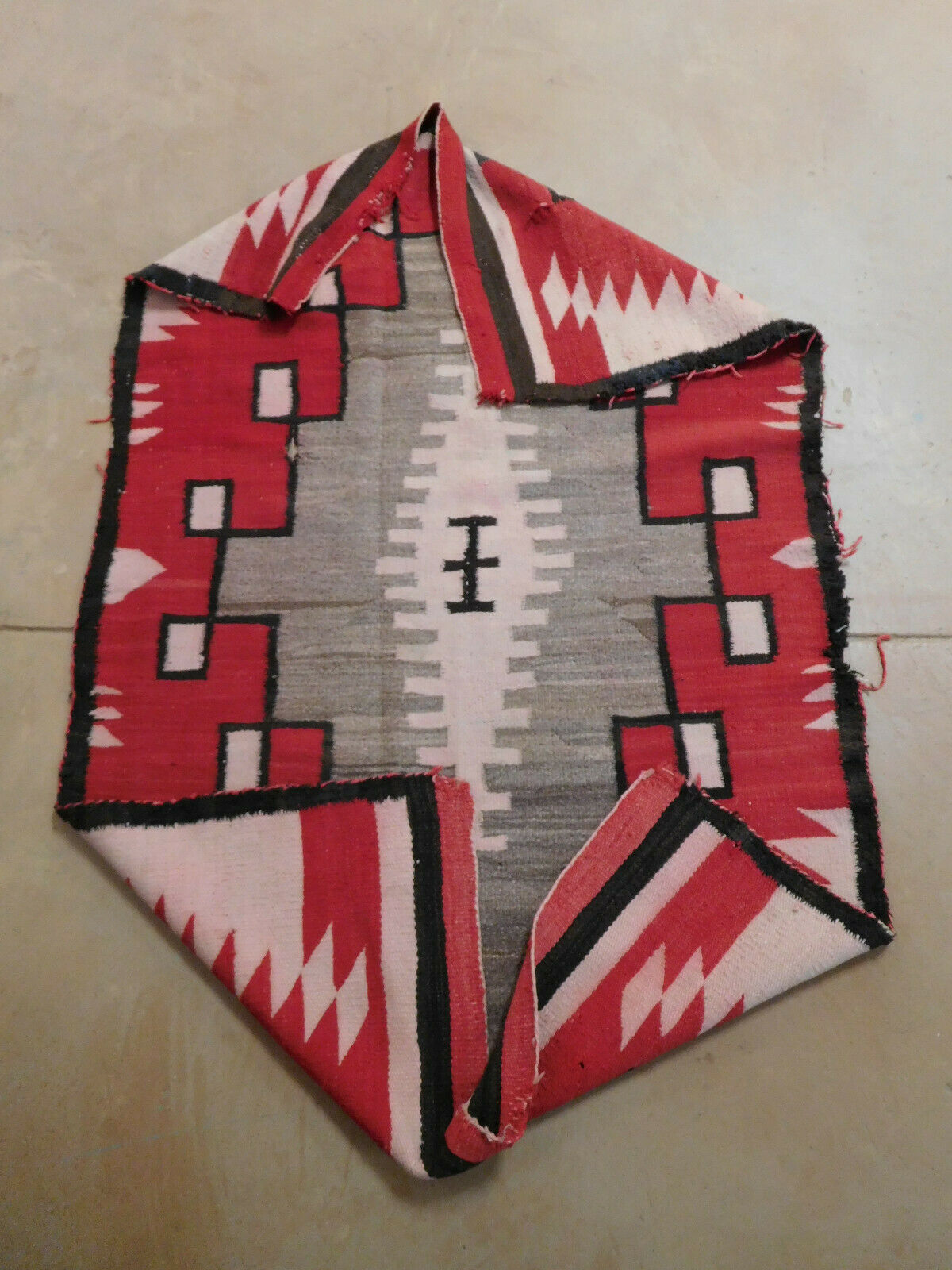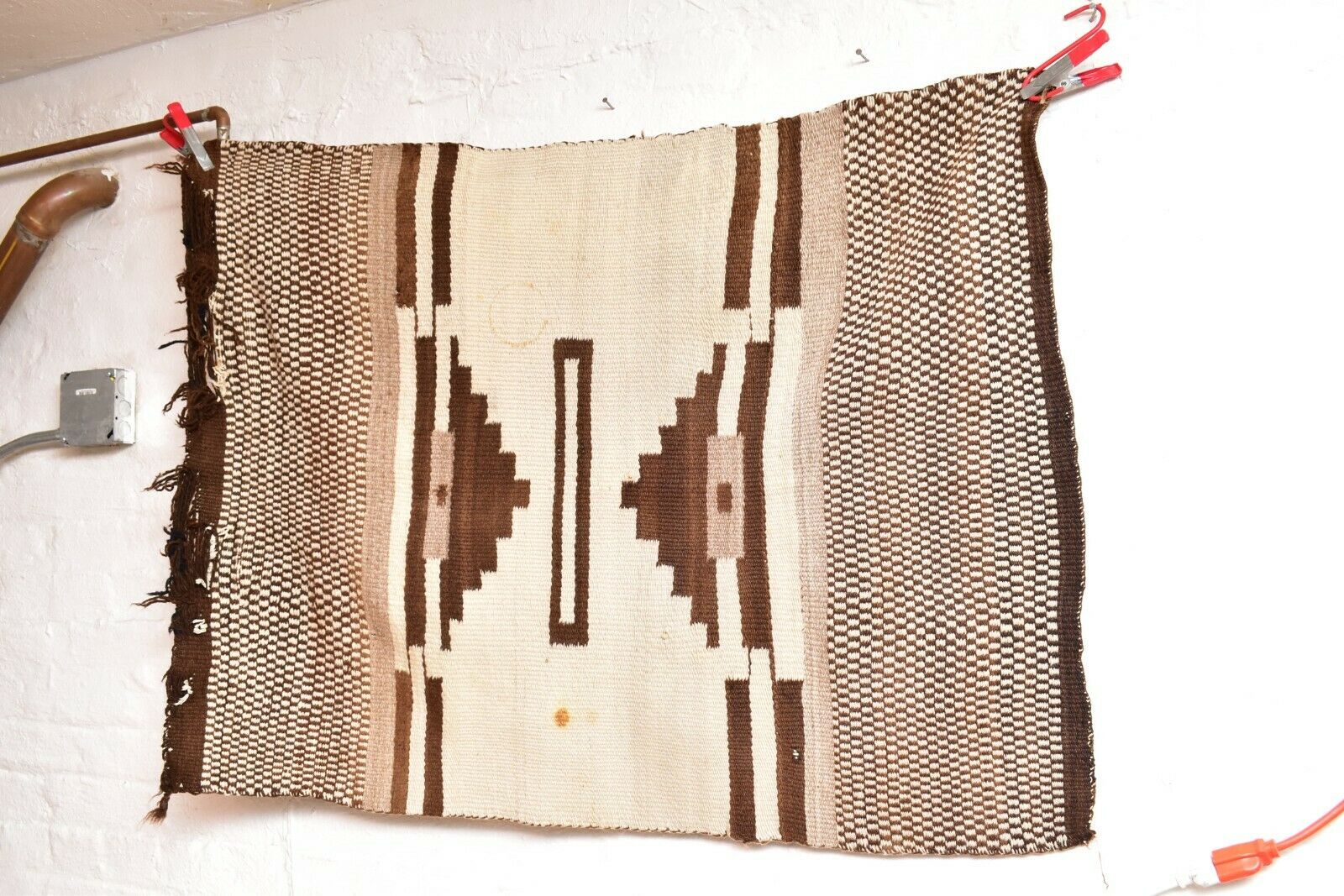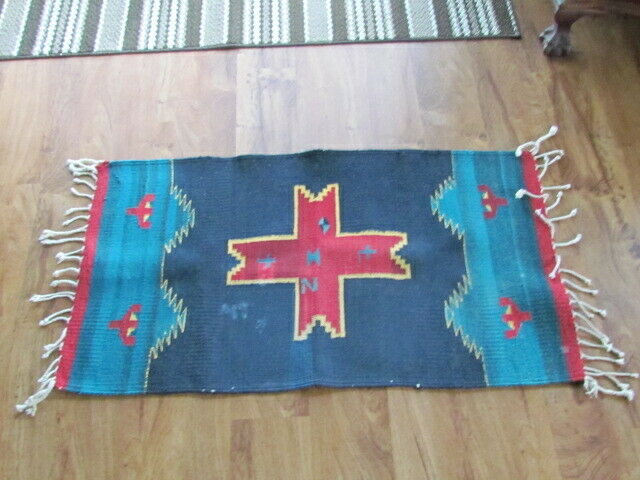-40%
SUPERIOR WEAVE NAVAJO YEI RUG,BEAUTIFUL GREEN HANDSPUN ACCENTS, EXCELLENT, C1930
$ 1188
- Description
- Size Guide
Description
SUPERIOR WEAVE NAVAJO YEI RUG,BEAUTIFUL GREEN HANDSPUN ACCENTS, EXCELLENT, C1930Roughly, 1 out of 10 Navajos are Pictorials and that includes Yei weavings. This Yei Pictorial would rank somewhere in the 1 out of 100 to 1 out of 1000 best Navajo Yeis ever woven. Consequently, this weaving is an exceptional and rare example of a Navajo textile.
These 7 hexagon-headed ceremonial figures wear ruffs of “green spruce” around their necks. The green handspun is also used nicely in the quill of the feathers that act as a second, inner border.
In some special antique Navajo weavings the weaver creates a woven anomaly. In this weaving it is found in the one concho belt that has a diamond shaped buckle instead of a square one.
The handspun wool is silky smooth and the masterful weaving is as fine as you will find any antique Navajo Yei.
My guess is that this beauty was made in the Red Mesa/Teec Nos Pos region.
The rare border is a design from Cotton painted in 1896.
This large Pictorial measures 54” x 82”. Circa 1930. Fresh to the market.
Everything guaranteed as stated. Shipping includes insurance.
IN
an effort to assist Buyers with understanding the way I describe the condition of Navajo weavings that I’m selling on ebay, I spoke with Navajo textile author and expert Tyrone Campbell about his ‘Classification Categories for Condition’ that he first published in his NEWSLETTER in 1981.
After discussing with him that we may have to tweak it a bit because its been 40 years since it was originally comprised and has gotten nearly impossible to find weavings in excellent, let alone mint condition these days, I concluded, what the hell, why mess with a good thing. It’s a standard worth sticking to! So here it is as originally written (and with permission to reprint from Tyrone, July 2020).
+++++++++++++++++++++++++++++++++++++++++++++++++++++++++++++++++++++++++++++++++++++++++++++++++
“CLASSIFICATION
CATEGORIES
FOR DETERMINING PHYSICAL CONDITION
FRAGMENT: Any portion of an entire weaving.
DETERIORATED: Heavily damaged, warps exposed, selvage missing, large holes, serious fading or running, corners or areas missing.
AVERAGE: Shows floor wear or small holes, some selvage damage, very minor bleeding, etc.
GOOD: Above average classification may still show use, but not broken warps. In some cases a very small hole or two or a minor selvage break or two is acceptable.
EXCELLENT: No holes, no bleeding or fading, no exposed warps or serious selvage damage.
MINT: This classification means that the textile is in pristine condition.
NOTE: In the case of rare weavings we will up-grade the condition classification from Average to Good or from Good to Excellent, but in no case to Mint or from Deteriorated to Average condition.”
From THE TYRONE D. CAMPBELL NEWSLETTER, Published at Albuquerque, N.M., 1981.
++++++++++++++++++++++++++++++++++++++++++++++++++++++++++++++++++++++++++++++++++++++++++++++++
